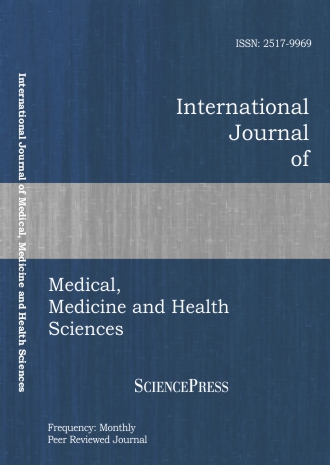
Scholarly
Volume:2, Issue: 7, 2008 Page No: 239 - 244
International Journal of Medical, Medicine and Health Sciences
ISSN: 2517-9969
1144 Downloads
A Fuzzy Model and Tool to Analyze SIVD Diseases Using TMS
The paper proposes a methodology to process the signals coming from the Transcranial Magnetic Stimulation (TMS) in order to identify the pathology and evaluate the therapy to treat the patients affected by demency diseases. In particular, a fuzzy model is developed to identify the demency of the patients affected by Subcortical Ischemic Vascular Dementia and to measure the positive effect, if any, of a repetitive TMS on their motor performances. A tool is also presented to support the mentioned analysis.
Keywords:
References:
[1] A.T.Barker, R.Jalinous, and I.L.Freeston, "Non-invasive magnetic